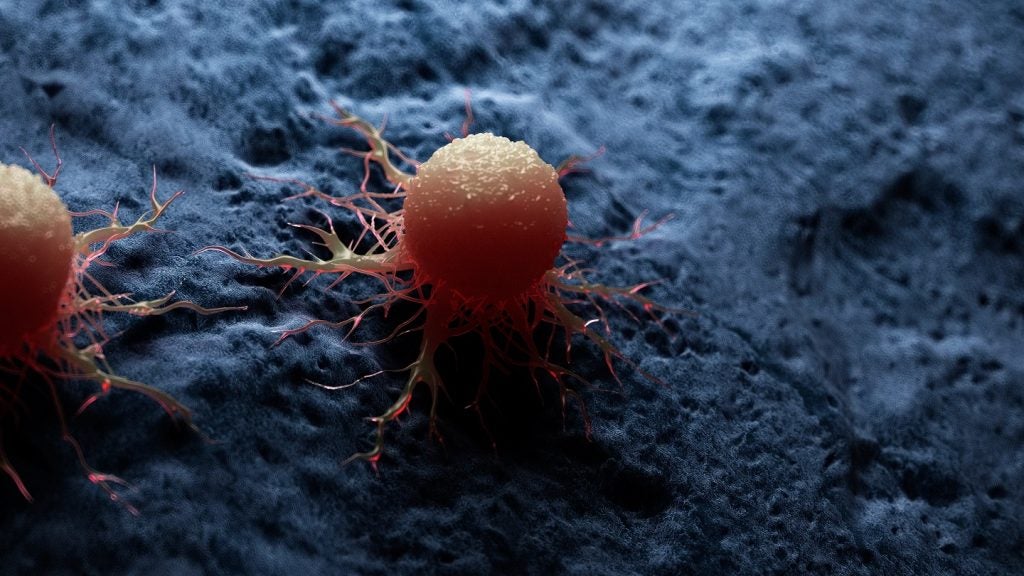The Transitional Cell Carcinoma (Urothelial Cell Carcinoma) drugs in development market research report provides comprehensive information on the therapeutics under development for Transitional Cell Carcinoma (Urothelial Cell Carcinoma), complete with analysis by stage of development, drug target, mechanism of action (MoA), route of administration (RoA), and molecule type. GlobalData’s report assesses key aspects of the companies and drugs in development for Transitional Cell Carcinoma (Urothelial Cell Carcinoma). Buy the report here.
The report also covers the descriptive pharmacological action of the therapeutics and the latest news and press releases. Additionally, the report provides an overview of the key players involved in therapeutic development for Transitional Cell Carcinoma (Urothelial Cell Carcinoma) and features dormant and discontinued products.
GlobalData tracks 164 drugs in development for Transitional Cell Carcinoma (Urothelial Cell Carcinoma) by 122 companies/universities/institutes. The top development phase for Transitional Cell Carcinoma (Urothelial Cell Carcinoma) is phase ii with 73 drugs in that stage. The Transitional Cell Carcinoma (Urothelial Cell Carcinoma) pipeline has 162 drugs in development by companies and two by universities/ institutes. Some of the companies in the Transitional Cell Carcinoma (Urothelial Cell Carcinoma) pipeline products market are: Bristol-Myers Squibb, Incyte and CSPC Pharmaceutical Group.
The key targets in the Transitional Cell Carcinoma (Urothelial Cell Carcinoma) pipeline products market include Programmed Cell Death Protein 1 (PD1 or CD279 or PDCD1), Programmed Cell Death 1 Ligand 1 (PD L1 or B7 Homolog 1 or CD274), and Fibroblast Growth Factor Receptor 3 (Tyrosine Kinase JTK4 or Hydroxyaryl Protein Kinase or CD333 or FGFR3 or EC 2.7.10.1).
See Also:
The key mechanisms of action in the Transitional Cell Carcinoma (Urothelial Cell Carcinoma) pipeline product include Programmed Cell Death Protein 1 (PD1 or CD279 or PDCD1) Antagonist with 18 drugs in Phase III. The Transitional Cell Carcinoma (Urothelial Cell Carcinoma) pipeline products include 14 routes of administration with the top ROA being Intravenous and 16 key molecule types in the Transitional Cell Carcinoma (Urothelial Cell Carcinoma) pipeline products market including Monoclonal Antibody, and Small Molecule.
Transitional Cell Carcinoma (Urothelial Cell Carcinoma) overview
Transitional cell carcinoma (TCC), also known asurothelial cell carcinoma, is a type of cancer that primarily affects the transitional epithelial cells lining the urinary tract, including the bladder, ureters, and renal pelvis. It is the most common form of bladder cancer. TCC arises when these cells undergo malignant changes, often due to exposure to carcinogens like tobacco or certain industrial chemicals. Symptoms may include blood in urine, frequent urination, and painful urination. Diagnosis involves imaging, cystoscopy, and biopsy. Treatment options depend on the stage and may include surgery, chemotherapy, radiation, immunotherapy, and targeted therapies. Early detection and treatment are essential for improving outcomes in patients with TCC.
For a complete picture of Transitional Cell Carcinoma (Urothelial Cell Carcinoma)’s pipeline drug market, buy the report here.
Premium Insights
From

The gold standard of business intelligence.
Blending expert knowledge with cutting-edge technology, GlobalData’s unrivalled proprietary data will enable you to decode what’s happening in your market. You can make better informed decisions and gain a future-proof advantage over your competitors.







